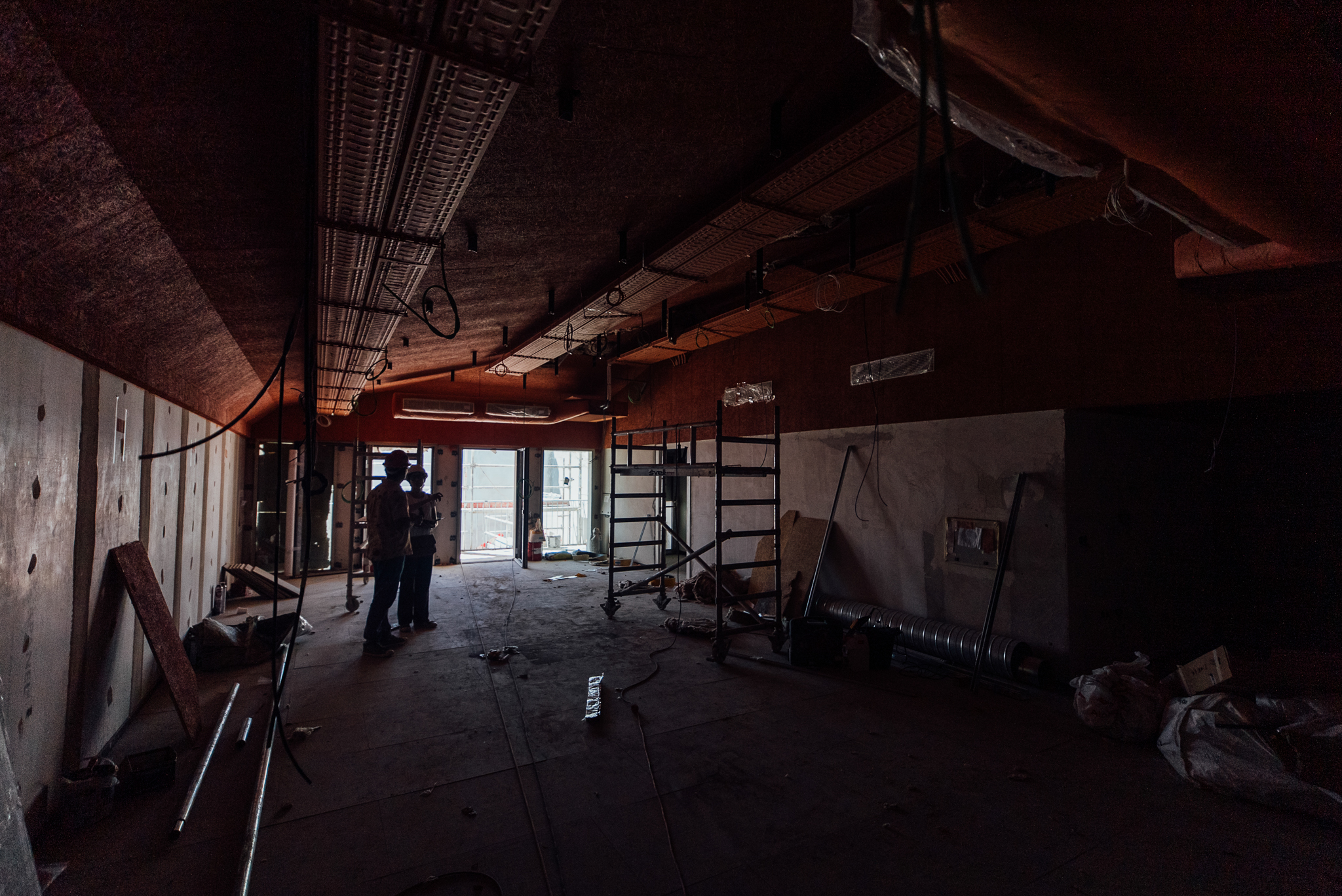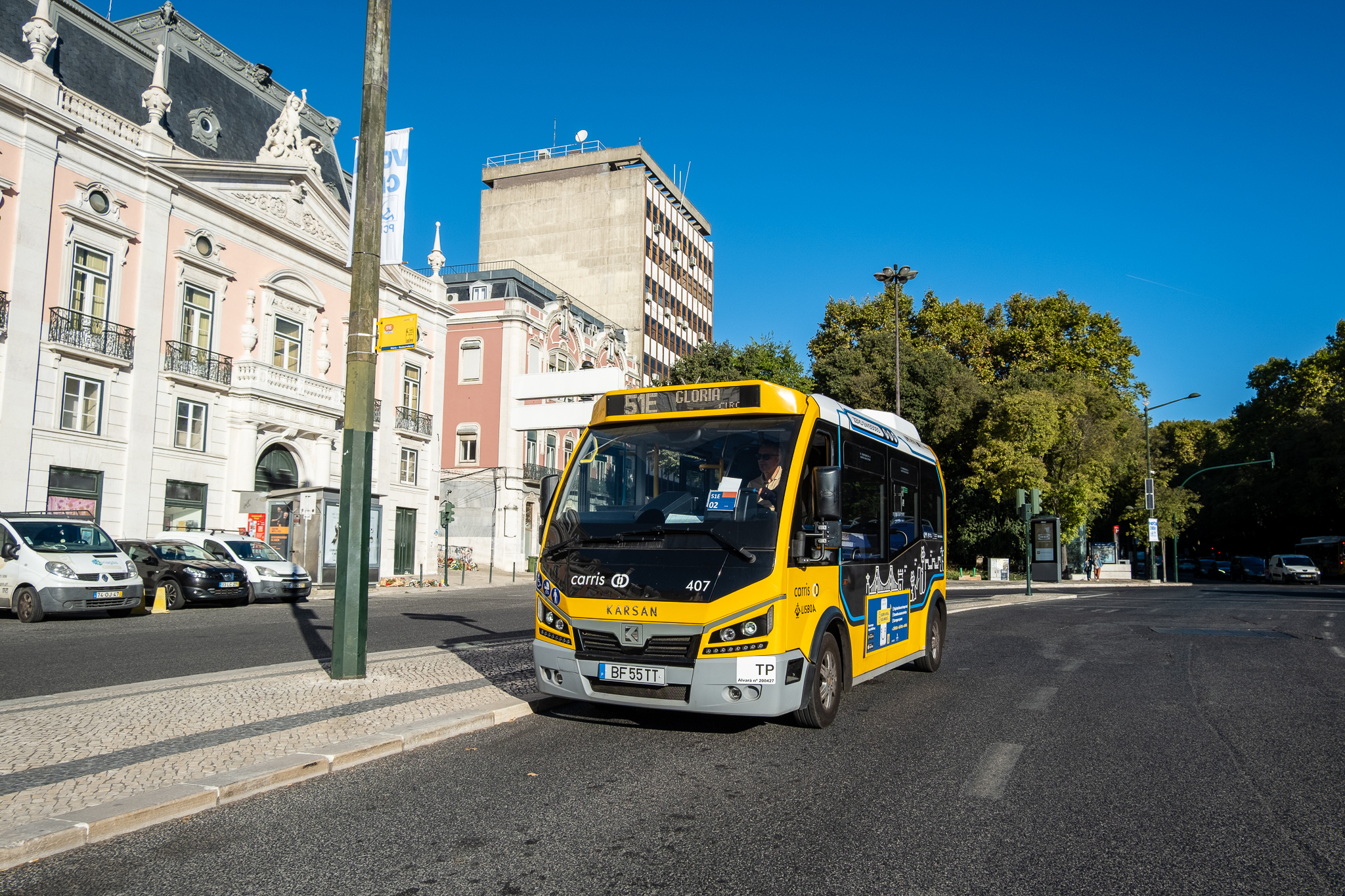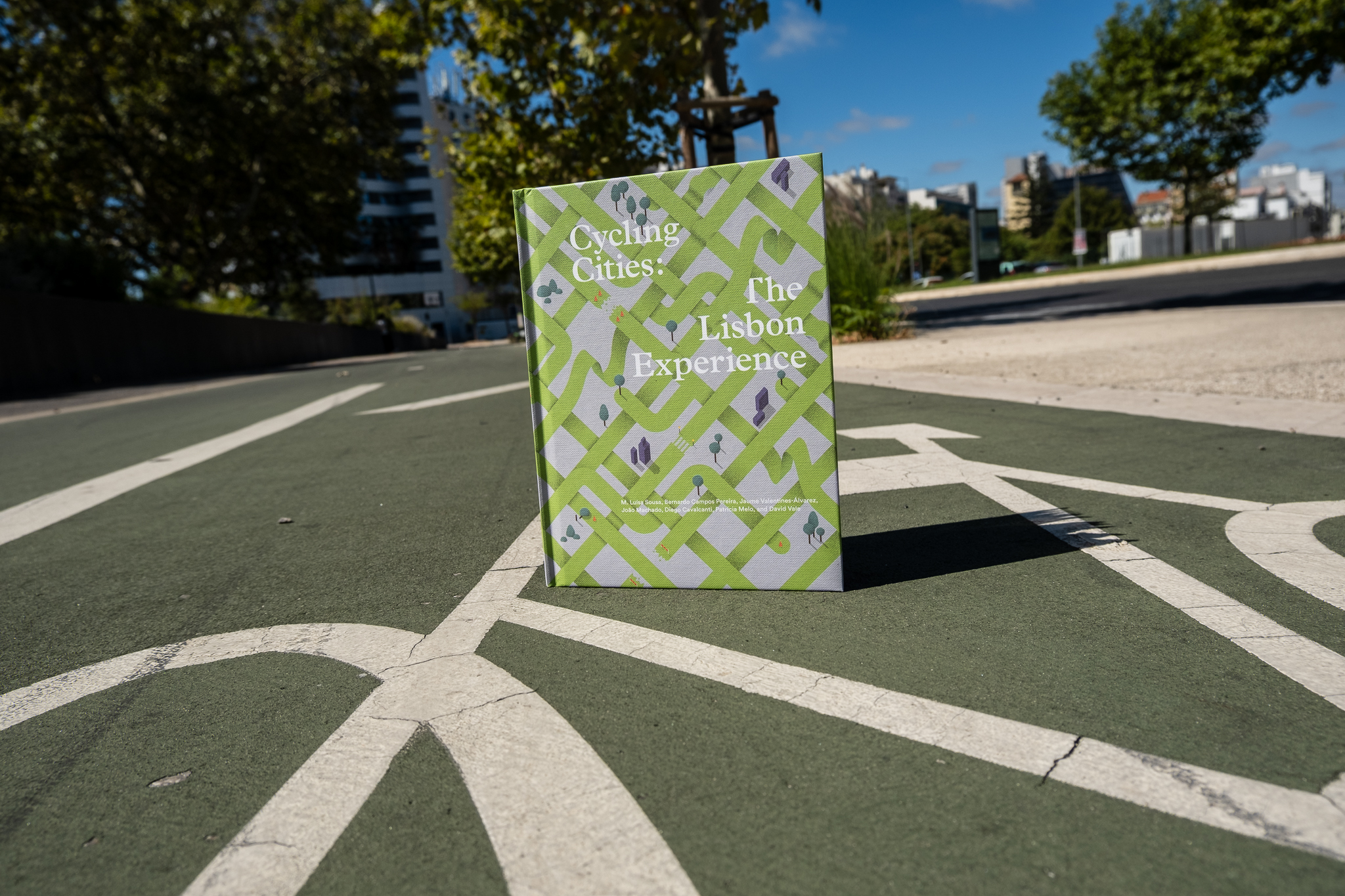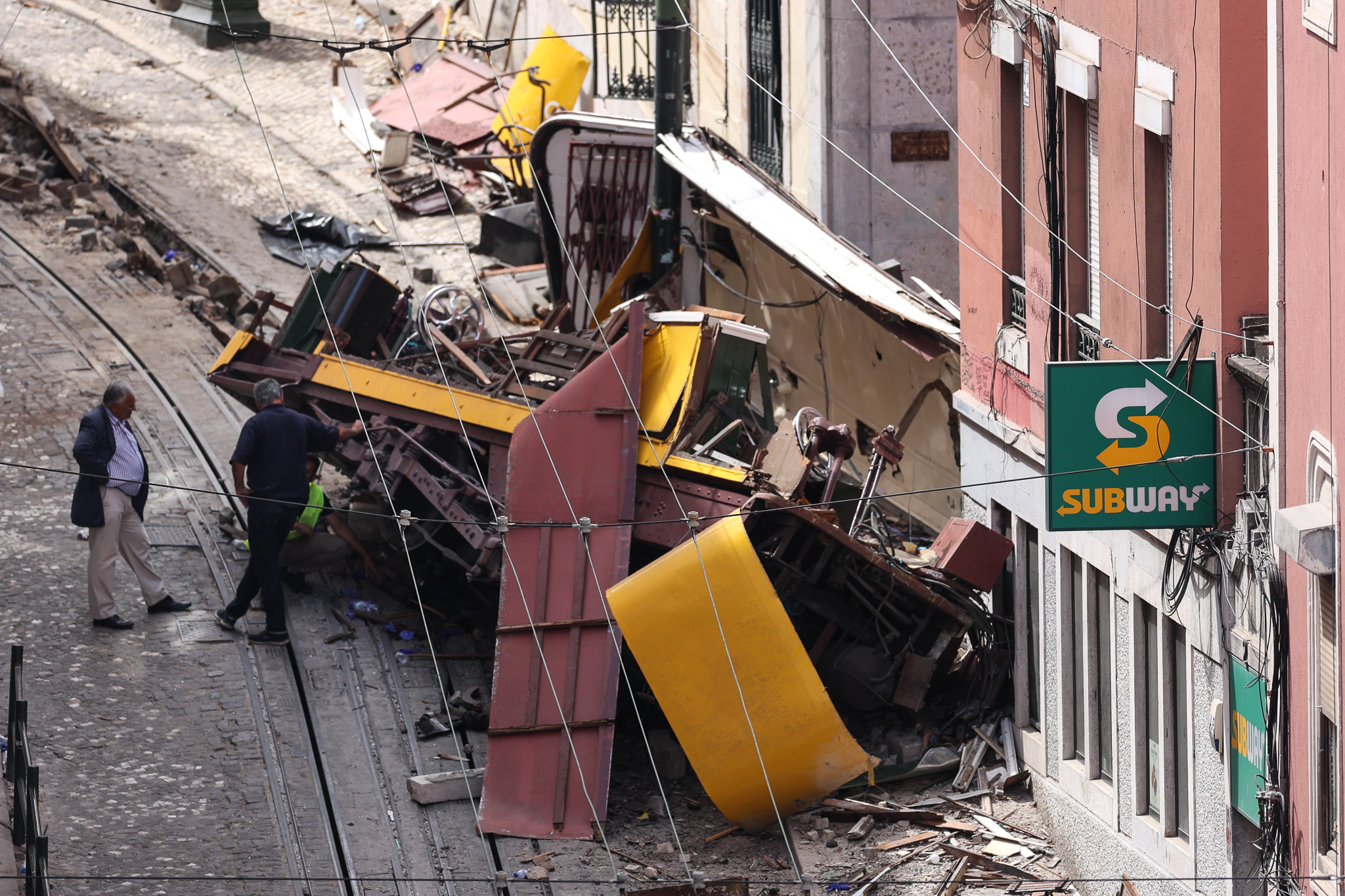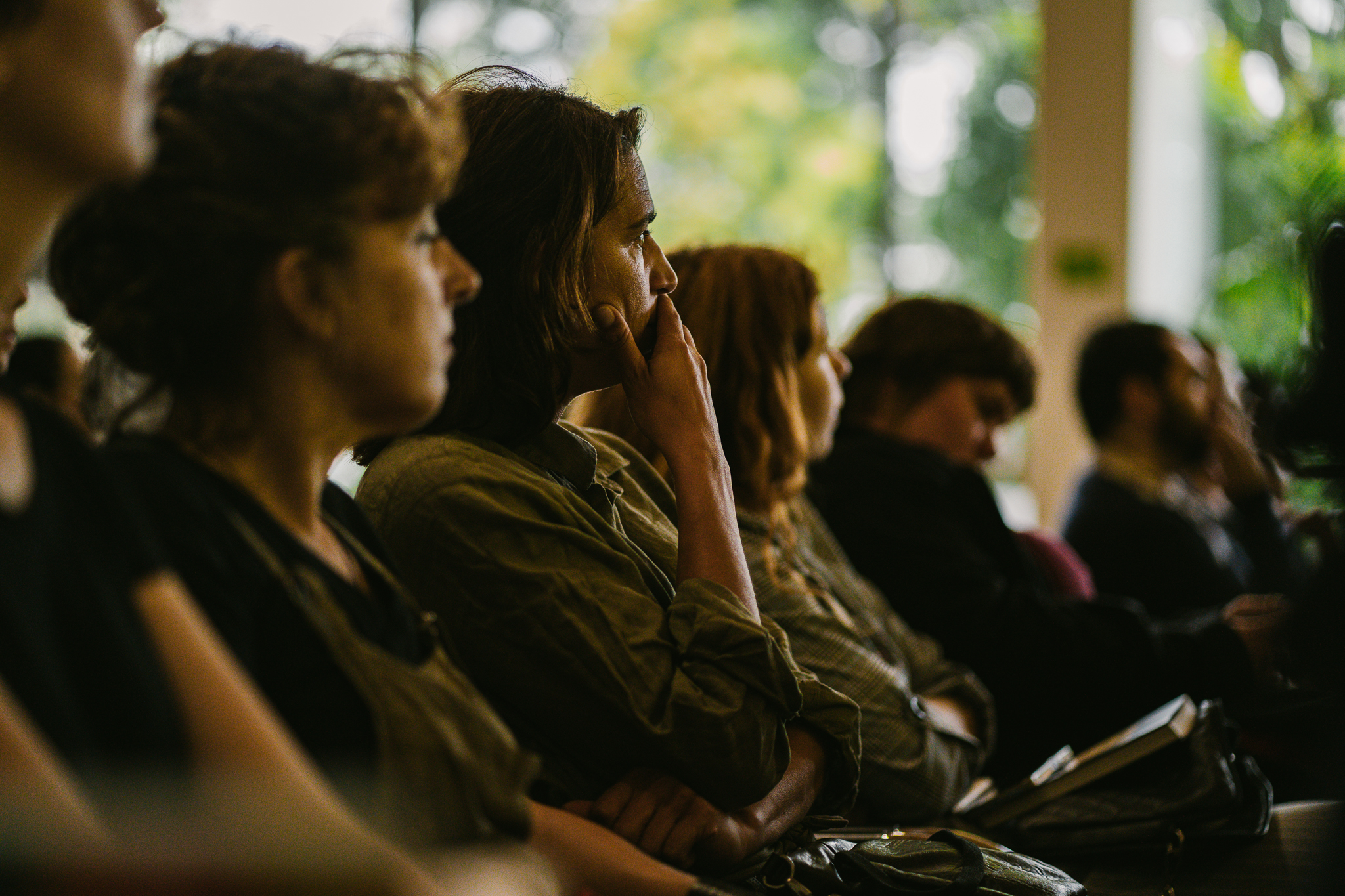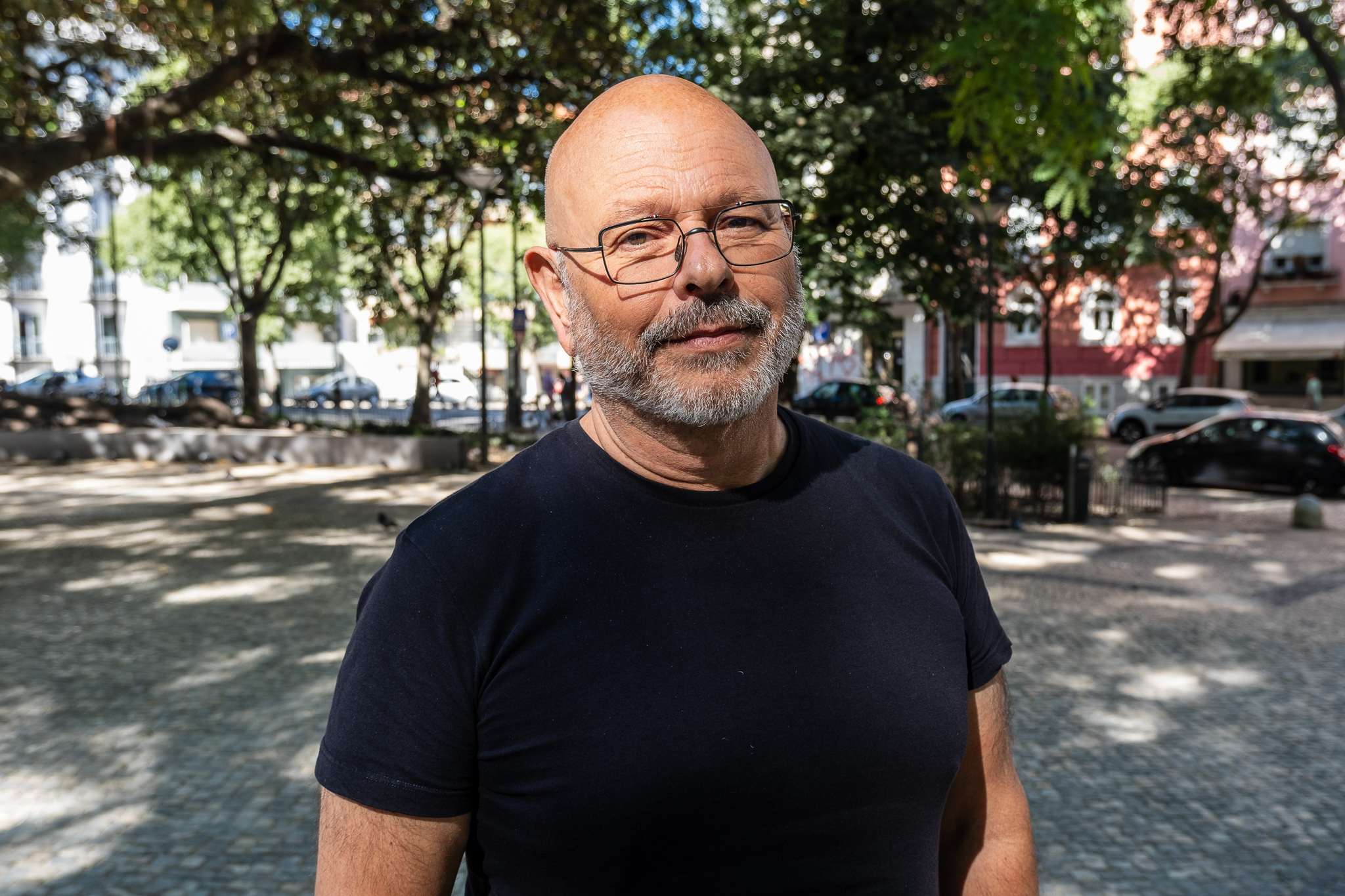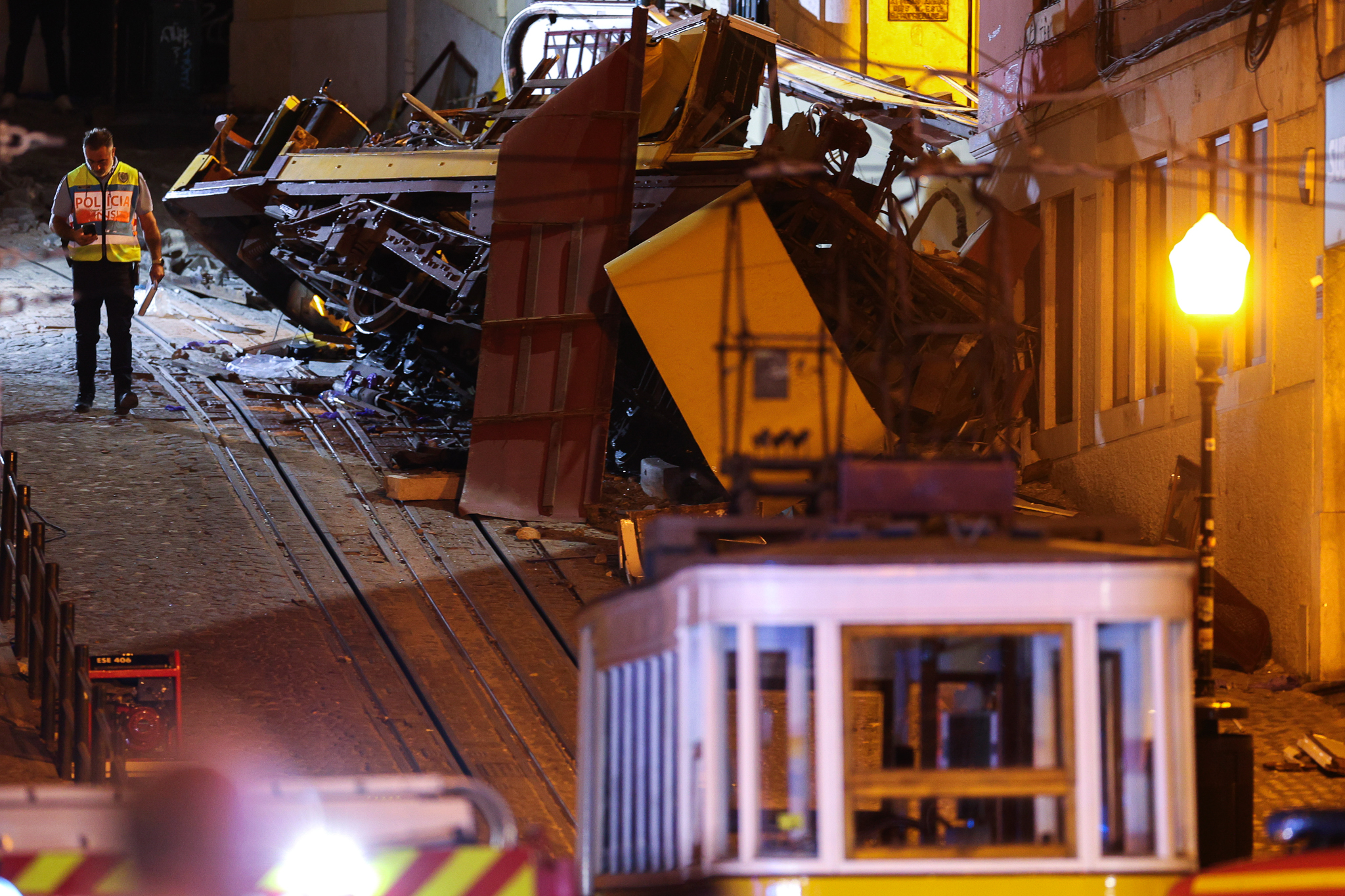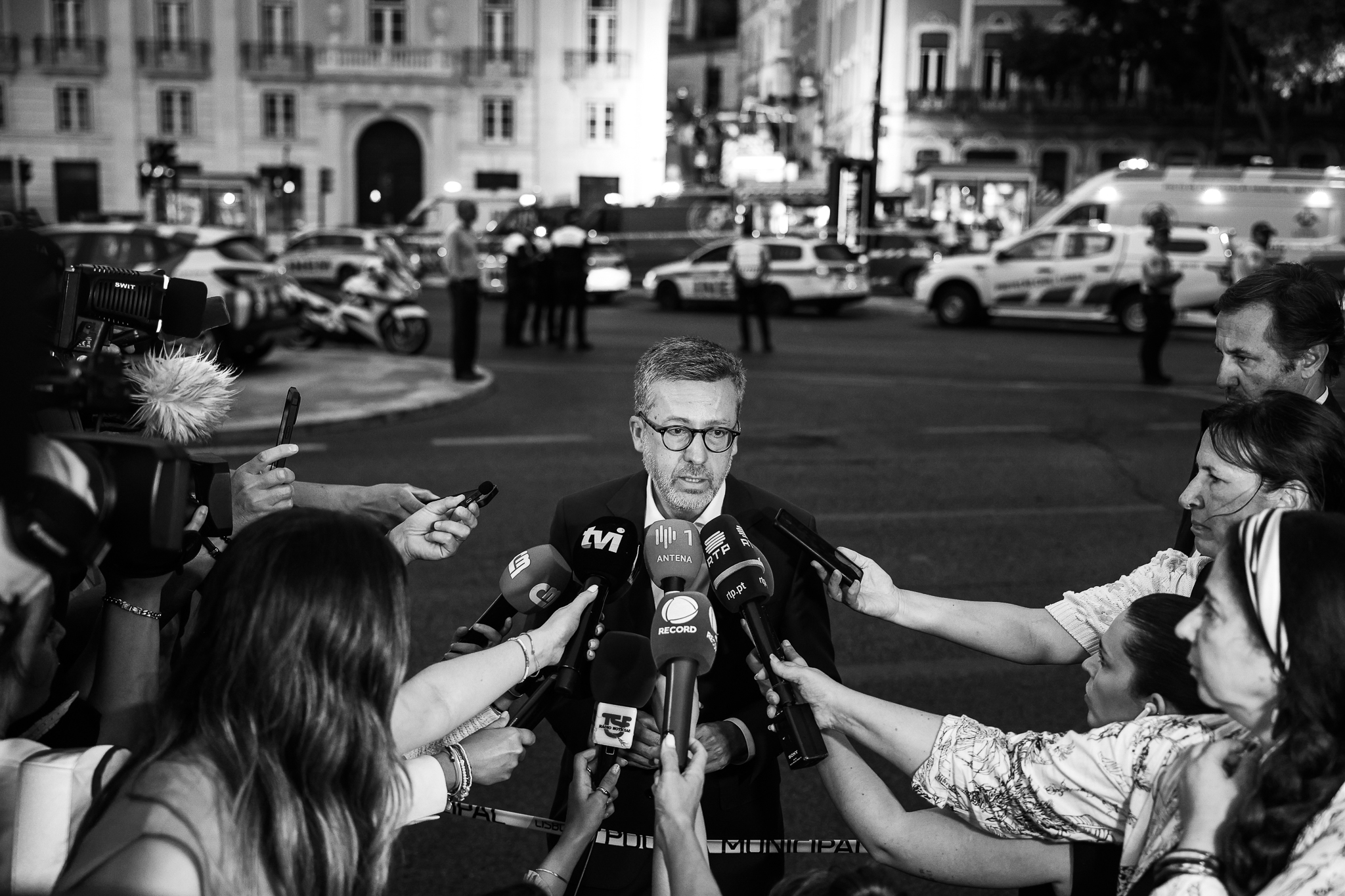
In its most recent edition, the Monocle writes that Lisbon is "possibly the best-informed city in the world"In an article where local journalism seems to be confused with national journalism, the recent Mensagem de Lisboa project is mentioned, as well as Público, Fumaça and RTP. But not only is Lisbon not Portugal, Lisbon may be one of the poorest regions in the country in terms of regional journalism. "Anyone who doesn't know the territory gets a completely erroneous idea of what the media landscape is like in Portugal. They think this is an oasis"Samuel Alemão, founder of O Corvo, one of the few projects that has marked local journalism in Lisbon in recent decades, comments.
Despite the fact that today there are almost 500 media outlets registered in Lisbon by the ERCAnd if we exclude publications by political bodies and organizations, the list is essentially reduced to two names - the Message from Lisbon and the Lisbon For People -, one or two titles aimed at a specific parish, such as the iconic Praceta Newspaper (about Alvalade), and a curious French-language magazine about the city, the Lisbon Magazine. History Lisbon Diary stopped publishing at the beginning of the 1990s, after having done so since 1921 and after the passing of names such as Fernando Pessoa, José Saramago, Mário Zambujal, João César Monteiro or José Jorge Letriaamong many others. And although it was published from the capital, where the country's development was taking place at a faster pace, the Diário de Lisboa had a national character - whose archive can be consulted here.
"I want to preserve the project with dignity"
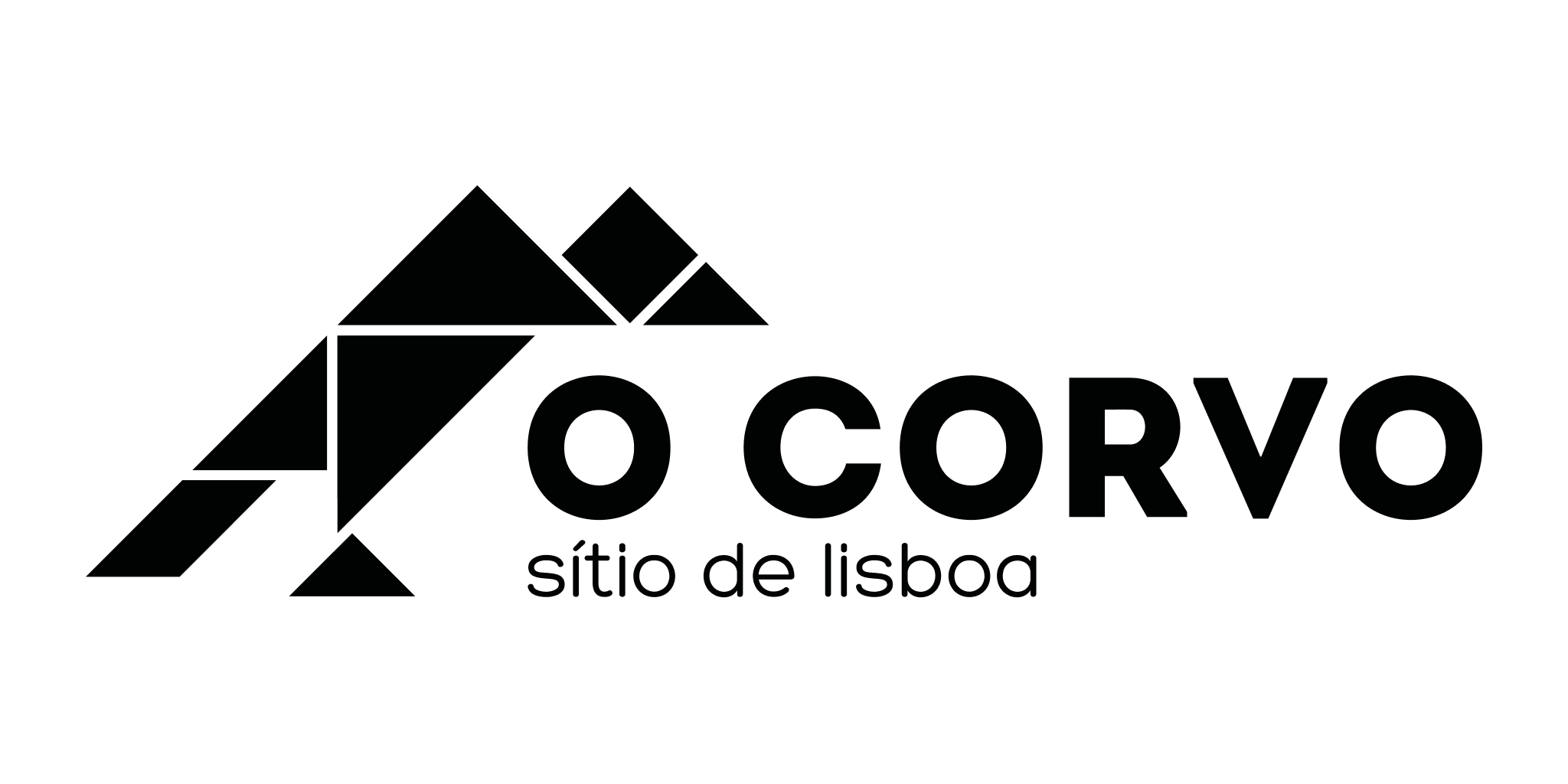
In a closer time - that is, the time of the internet - Lisbon lost in 2019 The Crow. Exclusively digital newspaper, directed and edited by Samuel German, a former journalist for Público, O Corvo was born in 2013 "from the realization that less and less local news is being produced", reads the project's presentation note, which is still up in the air. “The crisis of the press has to do with this distancing of the media from everyday citizenship issues. At the same time, while technologies increasingly allow this, citizens are less and less called upon to speak out and intervene in solving the problems they face." Corvo existed for six years and during that time it accompanied Lisbon's growth, scrutinized it, dealt with it. It never managed to be truly sustainable from a financial point of view, which is why it ceased publication on May 29, 2019. In the farewell textThe article, widely shared at the time, read:
The end has come because we have been unable to find a way to guarantee the financial sustainability that is essential for the newspaper to continue. Despite the efforts made since the beginning of the project, on March 1, 2013, and with particular vigor in the last two years, after the renewed impetus born of a reconfiguration of the company's capital, we have exhausted the capacity to continue doing quality independent journalism.
- note published on May 29, 2019, at the farewell to The Raven
The Raven has stopped publishing, but it hasn't disappeared. Its website tells the story of the town over a period of time and Samuel is keen to ensure that it doesn't disappear. "It's important to preserve the journalism that has been done. Memory cannot be erased, even more so in these times in which we live and in which there is a digital dust. The journalistic articles that have been written are historical documents"says in an interview with Lisboa Para Pessoas. "Memory has always been an issue for me. I'm very obsessed with memory, I'm one of those people who keeps files of newspapers at home." Between a job in a record store - he's passionate about music - and a few freelancing writing, editing or revising texts, the former O Corvo journalist has dedicated himself to revising each of O Corvo's articles, especially the older ones that have become outdated over time.
The aim is that Corvo can then become forever at Arquivo.ptFCT (Foundation for Science and Technology) public project that aims to keep the portuguese webincluding content published by the media. "I want to talk to them so that the site is fully integrated into their servers. I want all of Corvo's articles to be available on Arquivo.pt. I want to preserve the project with dignity." For now, Arquivo.pt has been useful for recovering some of the content of O Corvo that was lost in the middle of the project's life, due to a change of company. layout and servers. "I lost a lot of photos and I'm recovering them through Arquivo.pt. I want to finish that work this summer."
Browsing O Corvo's archive - for example, on the areas of mobility and the urban planning - is to navigate the history of the city of Lisbon between 2013 and 2019, its problems, the issues that marked it, the promises that have not yet been fulfilled and the social changes that have taken place. Over six years, O Corvo has done an exceptional job in the city, scrutinizing political institutions that are not used to being scrutinized because there is little local journalism about Lisbon (and there wasn't, with a few exceptions in the general press, between 2019 and 2021). What has failed? "The money failed. After six years there was already accumulated fatigue. You can't tighten your belt or live on very little money for long, it's like holding your head under water: you can hold your breath but not for long"says Samuel. His personal circumstances and some money saved up, "managed very sparingly"This allowed him to take his chances for a while. But, "A person doesn't live on passion alone. They also have their life, their private life."
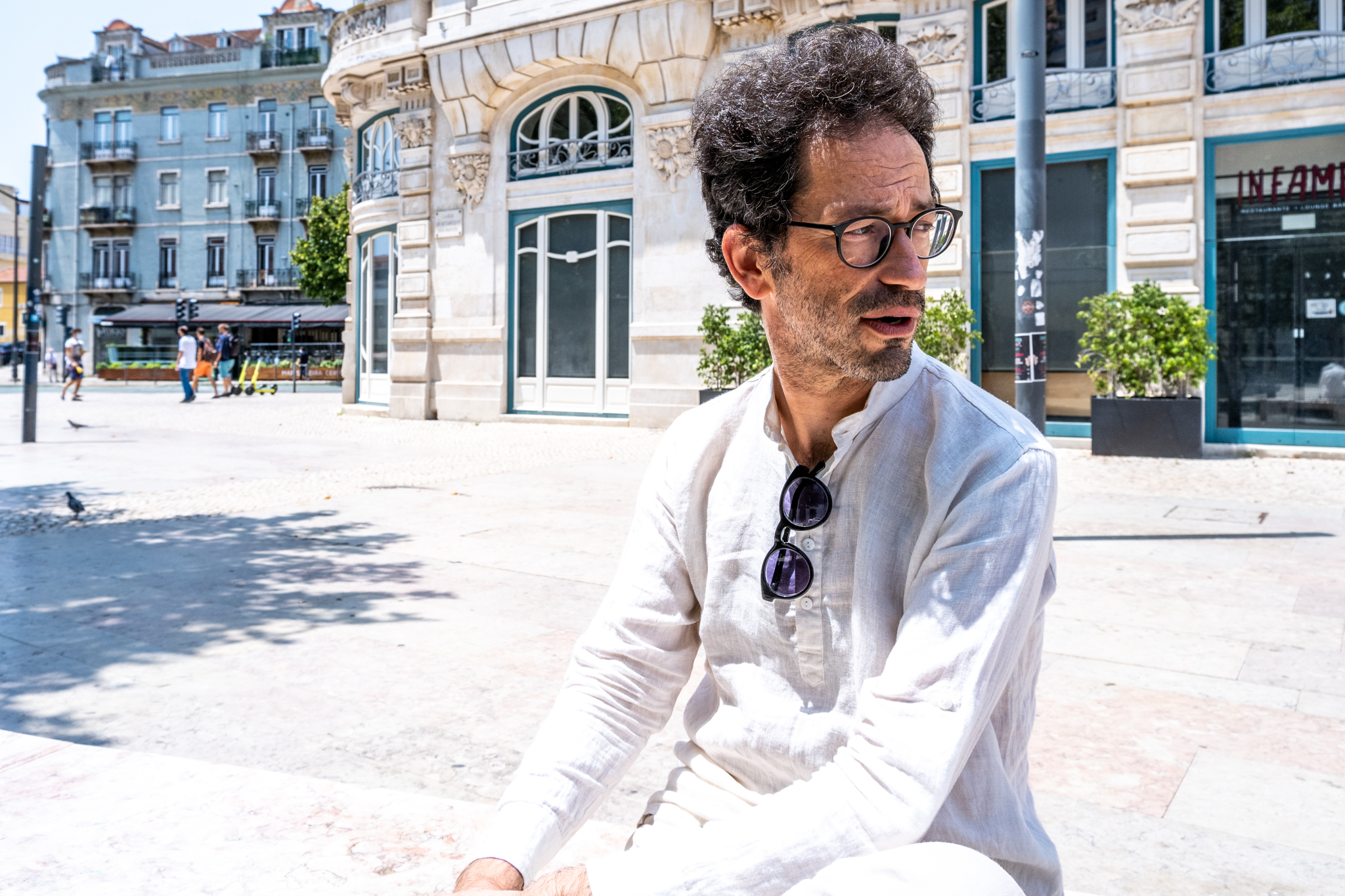
Samuel began The Crow in 2013 with Francisco Neves and Fernanda Ribeiro, former colleagues at Público, which until 2006 had a local section on Lisbon (as well as a section in Porto and, during the summer, one in the Algarve), where Samuel collaborated between 1998 and 2001. The initial enthusiasm came from "that naivety of doing something new, which I also had"in a city undergoing great change. "At the end of 2012 we started preparing the ground and we went online on March 1, 2013. The three of us. Each of us invited people we knew, from Público veterans like Isabel Braga or Luís Filipe Sebastião, to new kids, illustrators, photographers..."Samuel recalls without much effort. "The first meeting we had was at Padaria Portuguesa, and I remember sitting at a table, a bit insecure, and there were about 12-15 people"he says, confessing that he didn't expect such a large turnout.
Everyone worked pro-bonoThis was because, although there was a desire to make O Corvo a serious and sustainable project, the desire to do local journalism was greater and more urgent than financial availability. "And people got tired, some sooner than others, and slowly left. And I held on to the boat." In 2017, "I was already very tired, exhausted, literally throwing in the towel when Daniel Toledo came along and proposed a partnership". Daniel, a Spanish journalist, freelancer, who was in Lisbon, met Samuel because they shared the same office space. coworkThe Noticiaria, downtown. He knew his work, admired O Corvo, struck up a friendship and decided to help him revitalize the project. Together, they set up a company equally divided between the two of them, in which Daniel contributed the financial capital and Samuel the journalistic capital. They earned the minimum wage and hired Sofia Cristino, a young journalist who is now a member of the Jornal de Notícias team and who began her career covering Lisbon for O Corvo, through an IEFP internship.
"Good journalism is always a journalism of discomfort."
In the last few years of O Corvo, the newspaper was essentially written by Samuel and Sofia, edited on a 2008 MacBook that Samuel still has, and photographed with the camera of the cell phone they both carried in their pockets. In Samuel's case, the photographic portfolio of O Corvo (and the city) was taken with his still current iPhone 4S. "This phone is a war phone. I got and continue to get the most out of it and the computer. I've stretched it to the limit" One of Corvo's motivations was not to "doing journalism sitting down". "It was about going out into the street, being close to people, to stories, to the news"says. But these stories, this journalism, he says, shouldn't just be about "little flowers and positive things" - must have a disturbing content. "Good journalism is always uncomfortable journalism."
Corvo has often been a nuisance, especially for Lisbon City Council and the city's other governing structures and institutions. "We've managed to annoy the House many times"he reports. "Some people told us that we were always looking at the negative side of things, that we were too negative. But that wasn't true. Everything isn't perfect, you have to clap your hands. And we journalists should be a breaking point." The Raven was "accused of everything and a pair of boots", “a sign that we were not in coalition with anyone [any party]": "We were accused of being pro-Chamber, of being right-wing, of being blockists, communists..." "People seem to think that anyone who does journalism always has a hidden interest."
Now, from the outside, Samuel can more easily identify what has failed and take on a new role. "mea culpa". "In the midst of that daily journalism, we always had things to do every day. I ended up drowning in that daily routine, in a paralysis." His extreme dedication to journalism and the city meant that he didn't think too much about building a business - or at least a financially sustainable activity - around the project. The site had Google's ad system - AdSense - which brought in very little per month, and there were a few unsuccessful business contacts. "We even had a communications agency, but it was zero or close to it". After the project ended, Samuel says he was contacted by a real estate investor in the city, but the conversation went nowhere. "Daniel and I were willing to make money selling the title, and we made them an offer. They thought about it but then gave up. They wanted me in charge, they wanted me to lead the project. But I was too tired, I needed a sabbatical"he says.
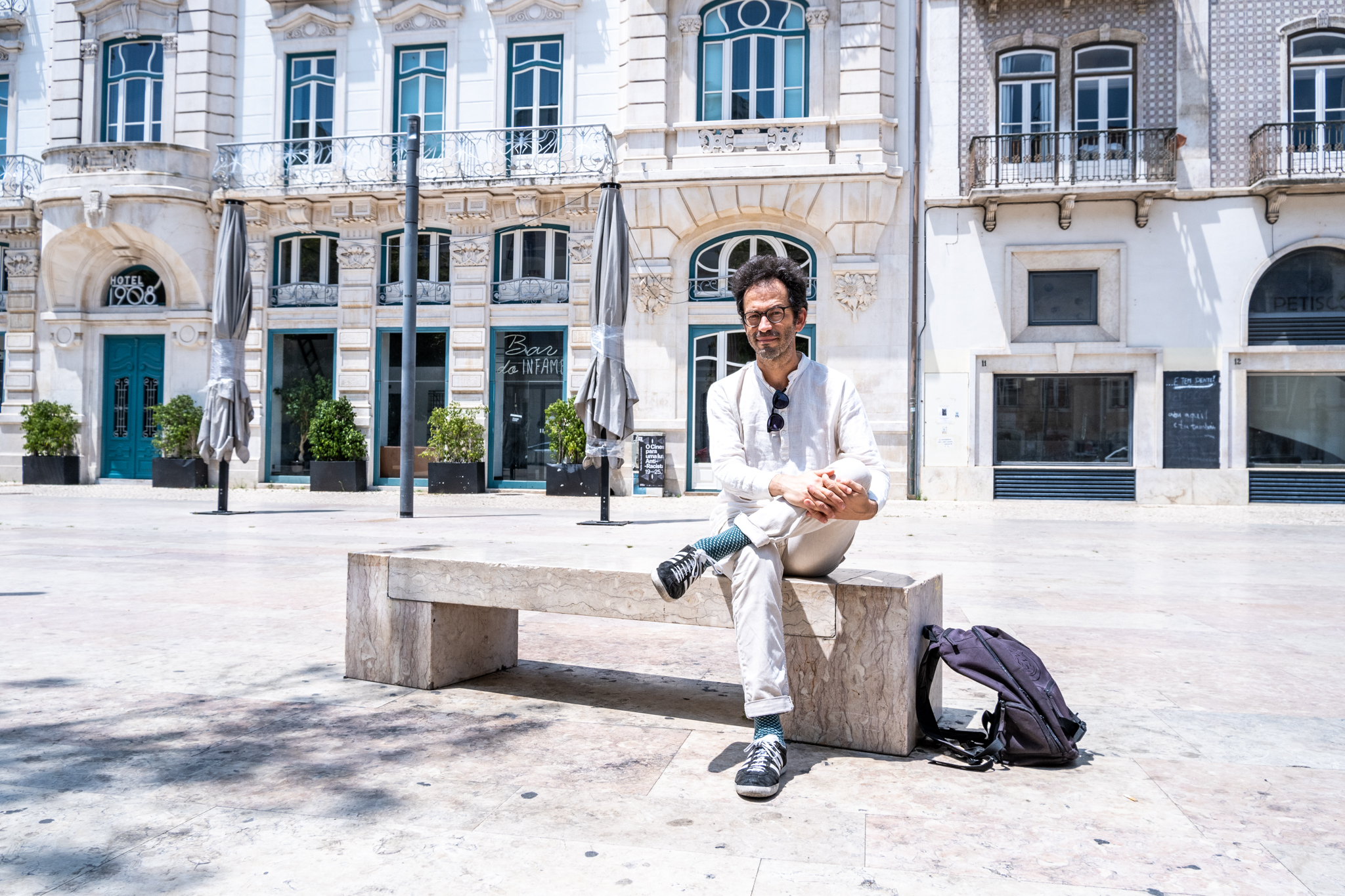
When O Corvo was born, Lisbon was very different from what it is today and the transformation of the city that Samuel witnessed can be felt throughout the history of the project. In 2013, António Costa, then Mayor, still had his office in Largo do Intendente, where he had temporarily moved it to show that the square had been given a new lease of life after the renovation work. Today, an interview with the founder of O Corvo took place in Largo do Intendente. "This used to be a parking lot for trucks, prostitutes, people injecting themselves. It was decadent, it was very bad."
The pandemic we've been living through has made us relate much more to our neighborhood, to small grocery stores and local businesses, and we've become much more aware of what goes on in our street and what doesn't - like the non-existent green spaces. For Samuel, "this movement of people being more connected to the city" started many years before, after the crisis that brought the Troika to Portugal. "People began to see the city differently, perhaps a little deludedly; they wanted to return to their roots, to the local, to their proximity. And now, a decade later, that movement is back." It may be an up and down movement, but there is a "continuum of change"in Samuel's opinion. "In Portugal, people aren't as engaged as in other European countries. It's a cultural thing. We're learning to have that civic commitment." The internet and social networks have allowed people to be more vigilant, "what is good and bad". "Sometimes all it takes is a little thing and people get hysterical about what's going on. There's no time to think, they don't let the dust settle, reactsoon."
Lisbon has changed since 2013 (or since 2019), but so has journalism. And perhaps today, O Corvo could have opted for other paths, such as a model of contributions or subscriptions, as several outlets have been exploring. For Samuel, supporting the media is also a role of the state. "We've reached a point where we think that what we have to lose by not having media organizations is much greater than having organizations that can be supported by the state, if the rules are clear and an independent fund is created that can be managed in this way." Even if the state decides to support journalism in Portugal, Samuel Alemão doesn't know if he will venture into O Corvo again, but he doesn't rule out a return to the project. "I don't have much desire. I'm mentally restless, I like doing new things", he confesses. "So it had to be something with great conditions. I don't want to repeat the suffering I've had. It was many years of blood, sweat and tears. It came out of my hair. It was very hard. I'm proud of what I did but when I finished, I can't hide it, I felt a sense of relief: 'it's over and I'm going to rest for a while'."
And he finishes: "The story of life is always unwritten and you can't be afraid."

